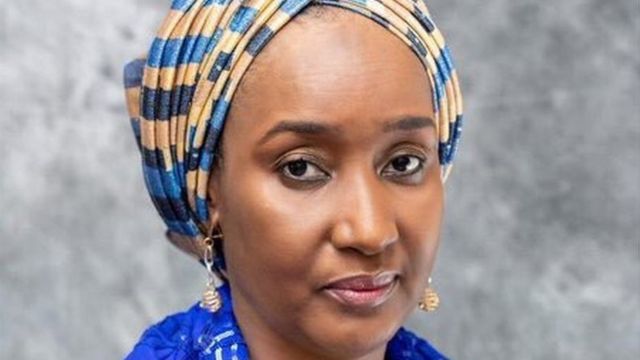It is not an overstatement to describe former President Muhammadu Buhari’s tenure in office as ‘disastrous’. But let’s focus on how the Ministry of Humanitarian and Disaster Affairs fared under the past administration. The Buhari-led administration prided itself on executing myriads of social intervention schemes and lifting millions of Nigerians out of poverty. The Buhari-led government boasted that it touched the lives of no fewer than 15 million Nigerians through the various social intervention programmes across the country.
Sadiya Umar Farouq was appointed Minister of Humanitarian and Disaster Affairs in 2019, immediately after the ministry was created. Some of the policies she executed while in the office include: the National Home Grown School Feeding Programme (NHGSFP), the Conditional Cash Transfer (CCT), the Government Enterprise and Empowerment (GEEP), and N-Power.
NHGSFP
The National Home Grown School Feeding Programme (NHGSFP) is aimed at reducing the number of out-of-school children, and also tackling malnutrition by providing daily food for children in nursery and primary school. The Ministry of Humanitarian and disaster affairs claimed that it provided nutritious foods to over nine million pupils in 36 states and the FCT while also creating jobs for no fewer than tens of thousands of Cooks employed from the local communities where these schools are located. The scheme, according to its national coordinator, gulped N12 billion monthly under the last administration.
However, the school feeding programme has been criticised for allegedly being characterised by misappropriation of funds, especially at the local level where implementation takes place. There were also issues of inconsistencies in the disbursement of funds which causes fluctuation in the provision of food. The programme has also not made much impact in reducing the number of out-of-school children.
CCT
The Conditional Cash Transfer (CCT) program was aimed at alleviating poverty and promoting social inclusion among vulnerable groups in the country. The programme provided direct cash transfers to the poorest and most vulnerable households in Nigeria, with the aim of improving their standard of living, enhancing human capital development, and fostering economic empowerment. It targeted households living below the national poverty line, typically those in rural areas.
Sadiya often boasted that about 2 million vulnerable Nigerians drawn from all parts of the country got N5000 cash support monthly under the ministry’s CCT scheme, which was supported by the World Bank.
However, many economic experts have argued that the scheme was a poor economic decision, on the premise that it was not an effective method of lifting people out of poverty. Even the World Bank expressed concern that evidence for longer-term transformative change among beneficiaries of the scheme was lacking.
GEEP
Government Enterprise and Empowerment (GEEP): Many Nigerians can relate to Tradermoni, MarketMoni and FarmerMoni which are the components of the GEEP. The beneficiaries include farmers, traders, and market women. The scheme was under the office of the Vice President before the Ministry Of Humanitarian and Disaster Affairs was created in 2019. Some economic experts also criticised the method of identification and disbursements, with fears expressed on recovery of the loans.
DISASTER MANAGEMENT
Her scorecard also shows that there was no planning for disasters such as floods, which claimed about 800 lives in the last 5 years. Over 600 lives were claimed by floods in 2022 alone. Some 1.3 million people were displaced, and more than 200,000 homes were destroyed. Even though there were warnings from weather and climate experts who predicted the calamity.
An emergency release of excess water from dams both in Nigeria and in neighbouring Cameroon was also another key factor in the devastating flooding which pointed clearly to poor planning from the government. The flooding affected 27 of Nigeria’s 36 states.

